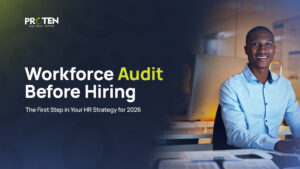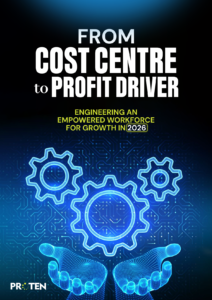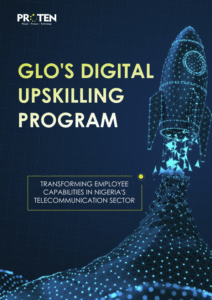Performance Management. Both HR professionals and employees may experience a multitude of emotions in response to just two words. The standard annual review procedure is subjective, time-consuming, and frequently falls short of recognizing your workforce’s continuous contributions and growth requirements. However, what if performance management could be transformed to become more effective, impartial, and, dare we say, interesting?
This is where Artificial Intelligence (AI) comes in. AI-driven performance management is quickly changing how businesses evaluate and develop their workforce. AI provides a wealth of advantages for HR and workers alike by utilizing automation, machine learning, and data analytics.
Why Traditional Performance Management Needs an Upgrade.
Let’s face it, the current state of performance management often falls short. A study by BambooHR found that a whopping 70% of employees feel their performance reviews are inaccurate or unhelpful. This can lead to disengagement, a lack of clarity on career paths, and ultimately, a less productive workforce.
Here are some of the key challenges plaguing traditional performance management:
- Subjectivity: Human bias can creep into evaluations, leading to unfair assessments.
- Infrequency: Annual reviews often fail to capture ongoing performance and development needs.
- Lack of Actionable Insights: Reviews often lack specific, actionable feedback that can guide employee improvement.
- Time-Consuming: The administrative burden of performance reviews takes valuable time away from strategic HR initiatives.
AI: Your Partner in Performance Management.
AI-powered performance management offers a compelling solution to these challenges. Here’s how:
- Enhanced Efficiency and Objectivity: AI frees up HR professionals and managers to concentrate on strategic initiatives and fruitful coaching talks by automating laborious chores like data collecting and analysis. AI can also detect patterns and trends in massive amounts of data, which enables more objective and data-driven performance evaluations.
- Personalized Development: AI can analyze employee strengths, weaknesses, and goals to suggest personalized training paths, learning resources, and mentorship opportunities. This fosters a culture of continuous learning and growth, ensuring your workforce remains adaptable in today’s ever-changing business landscape. A report by Lorman highlights the importance of this, stating that 74% of workers are willing to learn new skills or re-train in order to remain employable in today’s job market.
- Real-time Feedback: Gone are the days of waiting a year for feedback. AI-powered systems can deliver ongoing performance insights, allowing for course corrections and adjustments throughout the year. This real-time feedback loop empowers employees to stay on track with their goals and address any performance gaps quickly.
- Reduced Bias: By relying on data-driven insights, AI can mitigate unconscious biases that may creep into human evaluations. This ensures a fairer and more equitable performance management process, leading to a more engaged and diverse workforce. A study by McKinsey & Company found that companies with a diverse workforce outperform their less diverse peers by 35%.
- Strengthened Manager-Employee Relationships: With AI handling administrative tasks, managers are freed up for more meaningful one-on-one conversations and coaching sessions. This fosters stronger relationships, improved communication, and ultimately, a more engaged workforce. Research by Gallup shows that highly engaged teams show 21% greater profitability compared to their less engaged counterparts.
AI in Action: Practical Applications
Now, let’s explore how AI can be implemented in your organization:
- Goal Setting: AI can analyze historical data and industry benchmarks to suggest SMART goals (Specific, Measurable, Achievable, Relevant, and Time-bound) for each employee, ensuring alignment with individual and company objectives.
- Performance Tracking: AI can monitor progress toward goals and identify areas where employees may require additional support or resources. This allows for proactive interventions and course corrections throughout the year.
- 360-Degree Feedback: AI can gather and analyze feedback from various sources, including peers, managers, and even clients. This provides a more comprehensive picture of an employee’s performance, allowing for a well-rounded development plan.
- Continuous Feedback Loops: AI-powered systems can prompt employees to provide and receive feedback regularly. This fosters a culture of open communication and allows for ongoing learning and development.
Beyond the Benefits: Addressing Concerns.
As with any new technology, there are valid concerns surrounding AI. Here are some key considerations:
- Data Privacy: It’s crucial to ensure all data collected for AI-powered performance management systems is handled ethically and transparently. Employees need to understand how their data is used and have control over their privacy settings.
- Algorithmic Bias: Just like any human-created system, AI algorithms can be biased. It’s important to be aware of this potential and implement safeguards, such as regularly auditing algorithms and using diverse datasets for training.
- Human Oversight: While AI offers valuable insights, human judgment remains crucial for interpreting data, providing context, and making final decisions. AI should be seen as a powerful tool to augment, not replace, human expertise.
Getting Started with AI-Powered Performance Management
The benefits of AI-powered performance management are undeniable. But how can you get started on implementing this transformative technology in your organization? Here are some steps:
- Identify Your Goals: What are you hoping to achieve with AI-powered performance management? Do you want to improve efficiency, reduce bias, or personalize development plans? Having a clear understanding of your goals will help you choose the right AI solution.
- Evaluate Your Needs: Not all AI-powered performance management solutions are created equal. Assess your organization’s size, budget, and specific needs to find a solution that’s the right fit.
- Prepare Your Workforce: Change management is key. Educate your employees about AI and how it will be used in performance management. Address any concerns they may have and emphasize the benefits, such as more frequent feedback and personalized learning opportunities.
- Pilot and Refine: Start by piloting AI-powered performance management in a small group before rolling it out organization-wide. This allows you to identify any issues and refine the system before a full launch.
The Future Of Performance Management Is Here.
AI-powered performance management is not a fad; it’s the future of work. By leveraging this powerful technology, you can create a more efficient, objective, and development-oriented approach to performance management. This will not only benefit your HR team but also empower your employees to reach their full potential and drive your organization’s success.
At Proten International, we understand the complexities of implementing new technologies like AI. Our team of experienced HR consultants can guide you through every step of the process, from identifying your goals to selecting the right AI solution and ensuring a smooth transition for your workforce. Contact us today, and let’s discuss how AI-powered performance management can transform your organization.










